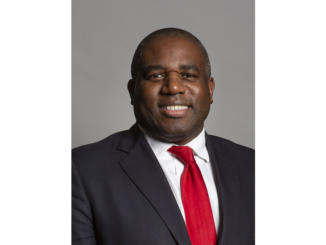
Diliff, CC BY-SA 3.0, via Wikimedia Commons
Regulatory agencies are not needed and actually retard whatever good they are suppose to prevent or mitigate. I’ll give just three quick examples.
The Center for Disease Control (CDC)
The underlying rationale for the CDC is that one federal agency has the ability to garner all the correct and legitimate medical information about a topic quickly, sift through the data, and recommend appropriate and timely action. On the face of it, this is a ridiculous undertaking. Medical information is scattered widely among scholars worldwide. It is impossible for one agency to know what is true, what is false, what is appropriate, or what is best. Medical knowledge evolves constantly. Medicine is never a “settled science” and it never will be. (George Washington’s death was agonizing, because his doctors followed the “settled science” that recommended leaches for ameliorating a serious chill.) The best we can do is to allow a free market in medical research and patient outreach. Then let the individual decide what is best. After all, this is nothing more than freedom based upon self-ownership. This conclusion would be the same if those at the CDC were not corrupt but honest citizens attempting to honor their mandate. But we know that power corrupts, and we saw this demonstrated to our horror with sanctions against respected researchers and doctors who disagreed with the CDC’s recommended approach. We are now learning that these respected researchers and doctors were correct and that the CDC’s recommendations, which became diktats, were harmful.
The Occupational Safety and Health Administration (OSHA)
OSHA is little more than a mafia-style shake-down racket. It deigns to enter a workplace and find safety violations that lead to fines. The agency is proud of the “fact” that it is self-funding. Well, so is the mafia’s protection racket. If a company disagrees with an OSHA finding, it can ask for a hearing…with OSHA itself. Then the company will be found guilty anyway and the fine will be higher still. Like all such agencies that are founded to find improper practices, its agents darn well better find improper practices; otherwise, the agency has no reason to exist and its employees will be out of a job. Like medical practices, there is no settled safety standard. There never has been and there never will be. Companies have a market incentive to provide safety in the workplace in order to keep good workers and avoid negligence lawsuits. Employees are not chained to their workplaces and can leave for safer environs at any time. The best outside safety examinations are performed by insurance companies who have a vested interest in reducing worker injuries which result in insurance claims. There is a healthy competition among insurance companies to keep fees and claims low. This is the free market at work.
The Federal Reserve Bank (the Fed)
One of the Fed’s many mandates is to ensure that banks are following safe banking practices. It accomplishes this mandate by periodic “examinations”. These examinations operate very much like OSHA’s safety inspections. Unsafe banking practices result in fines and can even lead to management dismissal. Like the two examples above, there is no clear definition of what is a safe banking practice. There never has been, and there never will be. If these examinations worked, there would be no great banking collapses. Yet since the Fed’s birth in 1913, the US has had one banking crisis after another. Banks both big and small fail or must be bailed out by federal money year after year, despite Fed examinations. The Fed itself is the biggest source of banking problems via its money expansion, interest rate suppression, and the unnecessary and burdensome cost of regulatory compliance that accomplishes little. Poorly run banks go out of business, just as poorly run restaurants, automobile companies, and all other private businesses. End the Fed!
Safety and Health Compete in the Marketplace with Other Economic Goods
Not only are concepts of what is safe and what is healthy constantly evolving, this is a world of scarcity and risk. Thusly, efforts to improve safety and health must compete for your limited resources with other economic goods. For example, do you get a periodic health checkup? If annually, great! Well, why don’t you get one twice a year? How often do you see the dentist? Do you drive a car with all the latest safety devices, even those not required by government, such as side air bags? Why not? Because you have other economic needs that must be met, such as food, clothing, and shelter. Furthermore, there is no universal standard as to how to dispose of one’s scarce resources. It is a personal preference that is constantly changing. It is illogical to force taxpayers to fund agencies that deign to make these myriad choices for us. Such decisions must compete for our patronage in the ever-changing marketplace. No doubt this is a humbling revelation to all the petty dictators in government regulatory agencies, which I’m sure they will fight with all the resources at their disposal. Nothing short of their jobs, pensions, and prestige are at stake. Too bad, I say. Let them offer their skills in the free market and add real capital to the economy for the betterment of all as each sees fit for himself.
* * *
Patrick’s Twenty minute interview on the Shaun Thompson Show in Chicago
© Patrick Barron 2024 Website



